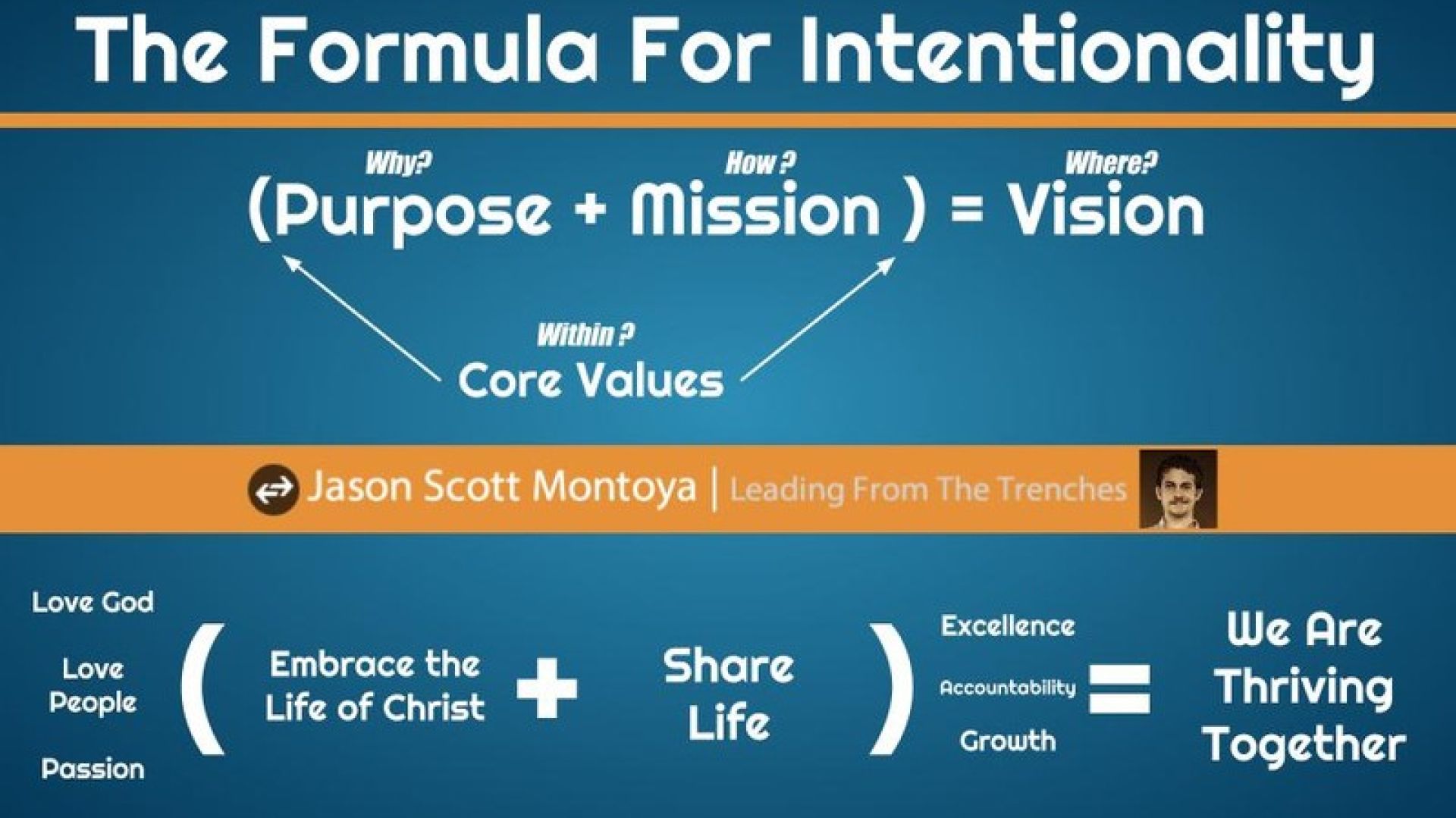
Thrive After DRAMATIC Life Changes: Build a Disruption Proof Identity With Purpose
It's important to have a purpose that transcends your entire life, allowing you to live it out, whether you're moving from one job to another or one relationship to something else. If your sense of purpose is tied to only one area of your life, its disappearance can lead to an existential crisis. However, by building a foundational purpose that transcends any single thing you do, you gain stability and strength. Lacking this can have severe consequences.

I want to share a story with you, and then we'll discuss purpose, how it integrates with our identity, and the traumatic consequences of losing our identity. After the story, I'll reflect on it and elaborate on the deeper meanings.
A Story of Lost Purpose
Several years ago, perhaps a decade ago, I met someone who had retired from a large corporation. He was part of a five-person team that would go to underperforming business locations across the country and turn them around. They were a consulting turnaround team, highly effective at what they did. When they entered a room, they commanded attention because they had the authority to make changes; people listened to them. They also had the power to hire and fire, making their decisions highly consequential. They were very successful.
The problem was that their job became their sole purpose to such a degree that their entire lives revolved around their work. They often worked up to 80 hours a week, seven days a week. For the person I met, he was working so much that he eventually came home to a note from his wife saying, "I can't do this anymore. I'm sorry. Goodbye." And that is how he learned he was getting a divorce. Working insane hours completely wrecked his marriage. More importantly, his entire identity and purpose, like that of all five team members, were derived from this job.
As they approached retirement, HR called them in and warned them that, given their deep involvement in their work, there was a high likelihood they would face an existential crisis upon retirement and potentially die within a couple of years. They all laughed it off, saying they'd be fine and enjoy a wonderful retirement of fishing and golf.
Those final two years passed, and they all retired. Six weeks later, after doing some fishing and golfing, they started calling each other, admitting, "I don't know what to do." They were experiencing exactly what HR had predicted: a sense of purposelessness, a loss of identity, and a loss of power. All the benefits they gained from working for the corporation were gone. When they walked into a room, nobody cared; they had no authority, so no one listened. They went from a strong position of power, identity, and purpose to feeling like nothing.
Two years after their retirement, two of the five had passed away. Another had a form of cancer and was not doing well, seemingly nearing the end of his life. The fourth person was also in poor health, though less severe. Of the five, the person I met was the only one who remained healthy and continued with his life. What did he do differently?
Finding a Transcendent Purpose
One of the things this person did was start a business. This new company gave him a renewed sense of purpose, something to do, a mission to participate in, and a community to create accountability towards new goals and a vision. When his work ended, he started something new, and that gave him something to live for. When you don't have something to live for, when you don't have a purpose, then dying is what we do. We die when there's nothing left for us to do, when there's nothing left to hold on to.
This story resonated with me deeply. Even a decade later, it's something I still reflect on and share with people because it powerfully illustrates how much our identity can be tied to a specific role at a particular company, and how devastating it can be when that ends. It also highlights the importance of building an identity and purpose that transcends any single job or company. It's crucial to be clear about who you want to be, the story you want to tell, and the purpose you want to live.
My Journey to Purpose
When I moved from Arizona to Atlanta in 2005, my life was chaotic. I struggled through many ups and downs. My wife and I moved here together, tried to start a company, and went to college, facing numerous challenges. I struggled, getting distracted by all sorts of toxic internal and external influences in business and various other outlets. I was floundering, and my life was chaotic. I had to go through the exercise of truly figuring out my purpose. I had inherited many healthy insights, mentorship, and community from my upbringing, and these informed and helped me. But ultimately, I had to take ownership and self-author who I was, what story I wanted to tell, and what purpose I was going to live out.
I started writing down my mission statement and purpose statement. For me, it's deeply rooted in my Christian faith. My purpose statement is to embrace the life of Jesus: the example he set and the life he gave. He came to Earth to save us, to give us his life so we may shed our fear of death and have eternal life in and with him, even beyond this life. I no longer need to fear death because I have a purpose that transcends my life here on Earth. That's a liberating idea.
It's also important to see Jesus as our example in the life he lived: the generosity, the love, the care, and the leadership he embodied. This, too, is something that we as Christians have access to, for him to shape that in us in the particular way he's created me and created you.
My mission statement is "to share life." This means both to give the life I have to others and to receive life from the other people in my life who have something to give. It's a mutual giving and receiving relationship, which is truly how God works. God is a mutually giving and receiving being, and we are invited to participate in that. And he makes a way through Jesus and his sacrifice on the cross.
My vision statement is "that we are thriving together." These three facets—to embrace the life of Jesus, to share life, and to thrive together—form a framework that guides me no matter what I'm doing, whether in my marriage, parenting, freelancing, or content creation. This is my guiding force.
So, when superficial things change—when my work changes, when I get a new client, when something happens in my life—it's always about accommodating my situation to live out that purpose, mission, and vision. No matter what circumstances come my way, what challenges I face, or what successes I have, I always ground it in this purpose, mission, and vision. Sometimes it will look different from what I expect or want, and sometimes there are tragic elements of reality that we have to accept. But in that acceptance, I know I can live this out in that situation, even if it's hard, and move towards that greater vision.
Reflection
I leave you with this to consider: When you think about your life, your purpose, your work, and your relationships, do you have that type of transcendent purpose?
Do you have that type of clarity?
If not, take the time to think through and discover it. Without it, as life becomes challenging and as you face tragedies, it will be very difficult to navigate them in any meaningful and fruitful way.
It's better to establish this now, before tragedy hits, than to wait until it does and not have it.


